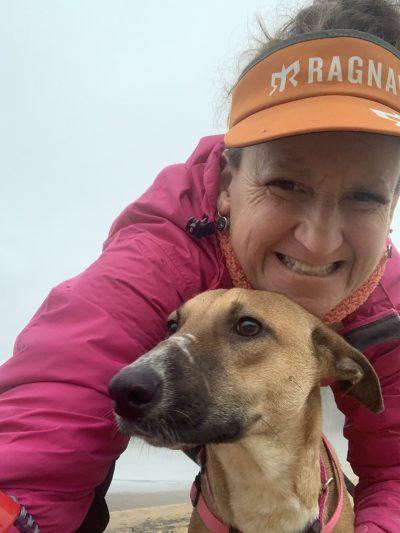-
About
- Leadership & Faculty
- News & Events
-
Admissions
-
Academics
- Graduate
- Advanced Clinical Training
- Continuing Education
-
Student Life
-
-
Accommodations
- Our Campus
-
Accommodations
- Graduate Resources
-
-
Research
-
Hospitals & Clinics
- Emergency Care
-
Hospital Services
-
Community Outreach
- Volunteer
To the Rescue
The experience and knowledge of our Emergency and Critical Care specialists saved newly adopted dog with sudden illness

The ink had barely dried on Poppy’s adoption papers when her foster-turned-owner, Deborah Williams, found the young dog in distress. Poppy, a medium-sized, tan mixed breed with ears like Yoda and endless energy, appeared healthy during the two weeks prior when Williams was fostering her. But at 3:30 a.m. on December 29, Williams woke to the sound of vomiting and found Poppy laying on her stomach with her back legs straight out, having defecated and urinated all over herself.
When the situation escalated to include neurological symptoms, severe GI upset, and bleeding, Williams rushed Poppy to the emergency room at Foster Hospital for Small Animals. “Her blood pressure was very low and her heart rate was very high as her body was trying to get blood flow to her organs, because she had just lost a lot of her blood volume,” says Emergency and Critical Care clinician Ian DeStefano, D.V.M., DACVECC.
Due to her symptoms, Poppy’s care team suspected that she was experiencing anaphylactic shock—an affliction for which there is no confirmatory test. So, the team used cage-side ultrasound frequently to determine the location of fluid build-up and swelling while monitoring her status. But one of the other challenges faced was financial. Just three weeks prior, Williams’ six-year-old lab passed away from lymphoma, which had been costly to treat. So it was imperative to prioritize Poppy’s treatment plan.
Poppy was administered aggressive IV fluid therapy to combat her severe dehydration. And, because of their suspicion regarding her diagnosis, the emergency and critical care specialists also initiated therapies that are more specific for anaphylaxis, such as giving her epinephrine—to which Poppy had a good response and her condition began to improve.
Throughout the day, Williams received updates on Poppy, and that night, she was relieved to learn that she had perked up. And, though she would need to stay in the ICU for a few days to monitor for complications, Poppy appeared to have passed the toughest part of her crisis. “The team answered all my questions which really put me at ease,” says Williams.
But, she wasn’t in the clear yet. Due to his experience, Dr. DeStefano knew there was a chance Poppy could begin bleeding into her abdomen and suddenly destabilize. His instincts were right—Poppy developed a coagulopathy, but due to it’s preparedness the team quickly treated it.
Over the next two days of monitoring and treatments, the fluids that were accumulating in Poppy’s bowel significantly improved. And by the end of the second day she began to eat, and by the third day, her diarrhea had resolved. On New Year’s Eve, Poppy returned home. “At that point she was kissing everybody and walking around and prancing,” says Williams.
Since returning home, Poppy has been doing well and Williams is grateful for the opportunity to grow closer with her new companion. “Poppy came into my life at a perfect time. We’ve totally bonded,” she says.
Department:
Foster Hospital for Small Animals